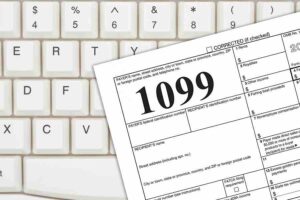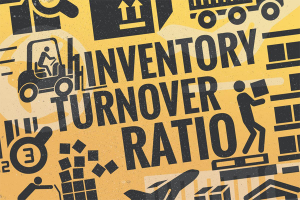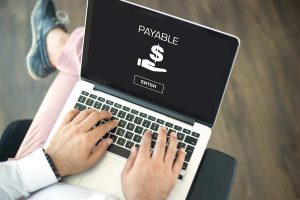The accounts payable (A/P) turnover ratio is a liquidity measure that shows how fast a business pays its suppliers during a specific period. The A/P turnover formula is: Accounts Payable Turnover = Total Credit Purchases Average Accounts Payable Accounts Payable Turnover Ratio Calculator Generate A/P reports faster by using accounting software. Our list of the…
What is
Workforce Analytics: A Guide for Small Businesses
Workforce analytics is the data collection and analysis that businesses use to understand their people (i.e., employees, teams, etc.). It can help your business measure employee performance, engagement, behavior, retention, and overall return on investment (ROI) related to your workforce. With technology, it is easier than ever to gather and crunch big data, simplifying work…
IRS Form 1099 Reporting for Small Businesses: Ultimate Guide
IRS Form 1099 is a series of forms used to report certain types of income that don’t come from a direct employer in the form of wages, salaries, tips, etc. Form 1099-NEC (nonemployee compensation) is the most common version, frequently used by small business owners. If businesses pay $600 or more in compensation throughout the…
8 Most Common Business Loan Terms to Be Aware Of
Common business loan terms or criteria can vary based on the type of financing you seek—such as term loans, business credit lines, equipment financing, and merchant cash advances. Depending on the loan type, various terms and conditions of the loan can be applicable and are often influenced by the lender’s risk tolerance and your creditworthiness…
Inventory Turnover Ratio Defined: Formula, Calculator & Examples
The inventory turnover ratio is an efficiency ratio that measures the number of times a company sells and replaces stock during a set period, generally one year. While you shouldn’t base decisions solely on it, a high inventory turnover is generally positive and means you have good inventory control, while a low ratio typically indicates…
What Is an Accounts Payable Aging Report? Definition & Benefits
An accounts payable (A/P) aging report provides a concise overview of all outstanding vendor invoices categorized by the due date, enabling businesses to track their payment obligations efficiently. This report is essential for maintaining financial stability and fostering positive vendor relationships. A primary benefit of utilizing an A/P aging report is proactive cash flow management….
What Is the Profit First Method & How to Use to Increase Profits
The Profit First method, a cash management strategy for businesses, prioritizes taking profit before paying expenses. It involves using separate bank accounts for income, profit, owner’s pay, taxes, and operating expenses. A predetermined percentage of each sale is allocated to the profit account first, ensuring guaranteed profitability. This system forces businesses to manage expenses within…
Salary History Bans By State: Everything You Need to Know
Learn how state salary history ban laws can affect the interviewing and hiring process. Check your state and local laws.
A salary history ban prohibits employers from asking job candidates for information about their salary history. While there currently are no federal laws against asking these questions, there are 22 salary history ban states (including D.C.) that have imposed an official forbiddance on asking about salary history. To comply, some companies are updating job applications…







